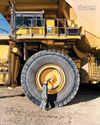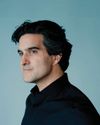
ANDREW DAVIS, an actuary at global financial services firm Deloitte, makes a comfortable living. But he might not have thought of outfitting his 62-acre plot of land near Clear Lake, Minn., with a solar generator-or planting a fruit orchard there without the company's well-being subsidy.
The benefit allows employees up to $1,000 annually for items that can improve their health and wellness. It covers the obvious, like gym memberships. But it can also be used for purchases that improve mental health, like musical instruments, and items that nurture the earth, like solar panels.
For Davis, Deloitte has chipped in on a family karaoke setup, green fees for golf with his dad, and books to inform his next project: establishing a chicken farm..
The subsidy has opened his eyes to opportunities for "emotional health" and made them a reality without requiring him to sacrifice in other areas. His sustainable acreage-with company-funded improvements-has become a place that makes Davis feel like a great human being" in his off time, he tells Fortune. He says tending to the land with his wife and children is "an amazing feeling."
Health care is a key employee benefit in the U.S. Could "wellness care" become one, too? There's a growing awareness among business leaders, public health officials, and physicians that employers can dramatically affect our quality and perhaps even length of life. Companies that take the responsibility seriously are likely to benefit from a more productive, dedicated workforce-and employees who may work longer before retirement.
Denne historien er fra August - September 2023-utgaven av Fortune US.
Start din 7-dagers gratis prøveperiode på Magzter GOLD for å få tilgang til tusenvis av utvalgte premiumhistorier og 9000+ magasiner og aviser.
Allerede abonnent ? Logg på
Denne historien er fra August - September 2023-utgaven av Fortune US.
Start din 7-dagers gratis prøveperiode på Magzter GOLD for å få tilgang til tusenvis av utvalgte premiumhistorier og 9000+ magasiner og aviser.
Allerede abonnent? Logg på

THE NEW GOLD RUSH
Gold prices have soared amid global uncertainty and a central-bank-driven buying spree. But this time, the gold mining industry looks very different.

A New Season for Giving
As the PGA TOUR kicks off its 2025 season alongside its sponsors in Hawai'i, the organization is continuing to make an impact in local communities.

WELCOME TO ELONTOWN, USA
The small town of Bastrop, Texas (pop. 12,000), has become a home base for Elon Musk's business empire. What comes next is anyone's guess.

100 MOST POWERFUL PEOPLE
Our inaugural, authoritative ranking of the leaders whose innovation and impact have elevated them to the top of the business world.

ARE CEO SABBATICALS THE ULTIMATE POWER MOVE?
WHEN VENTURE capitalist Jeremy Liew and his wife were dating, they talked about how one day they would take a year to travel the world. \"That's how we'd know we'd made it,\" Liew says.

WHAT ARE THE BEST METRICS FOR MEASURING A STARTUP'S POTENTIAL?
IN HIS 2012 ESSAY \"Startup = Growth,\" Paul Graham talks about a 5% to 7% weekly growth rate as table stakes for startup success. If you're growing 10%, he says, you're doing \"exceptionally well.\"

TECH POLYMARKET'S ELECTION ACCURACY MADE SHAYNE COPLAN A STAR-BUT AN FBI RAID POINTS TO TROUBLE AHEAD
IN NOVEMBER, Shayne Coplan had a week he'll remember for the rest of his life: He got a phone call from the highest echelons at Mar-a-Lago. He went on TV for the first time. And his New York City apartment was raided by the FBI.

WHY BIG TECH IS THE NUCLEAR INDUSTRY'S NEW BEST FRIEND
OVER THE PAST several years, Big Tech firms like Google and Microsoft have trumpeted ambitious plans to go carbon-neutral, or even carbon-negative, by 2030. But then the generative-AI boom came along and threw a giant wrench in their plans.

WHAT PALMER LUCKEY, THE MAN REVOLUTIONIZING WARFARE, IS AFRAID OF
PALMER LUCKEY, the founder of the $14 billion Al-powered weapons startup Anduril, has become the face of change in the defense industry.

GLOBAL BUSINESS BRACES FOR TRUMP 2.0
AROUND THE WORLD in 2024, voters chose change: in South Africa, France, Britain, and Japan. But nowhere does the anti-incumbent trend matter more than in the United States.